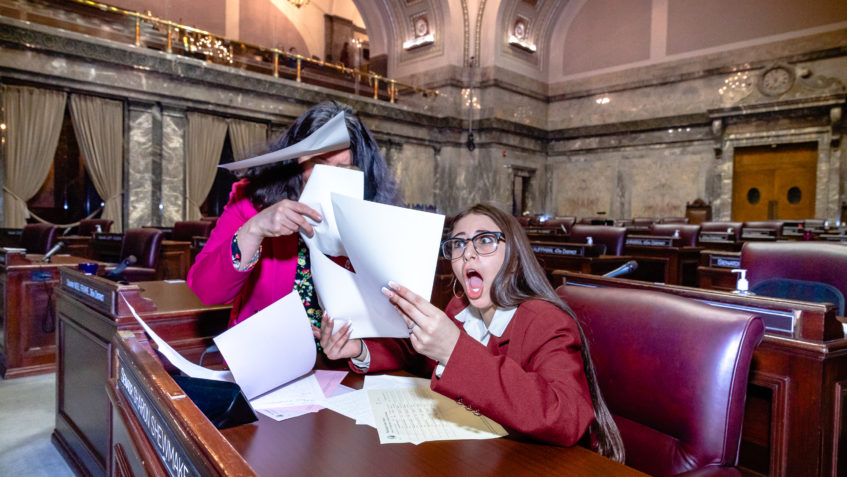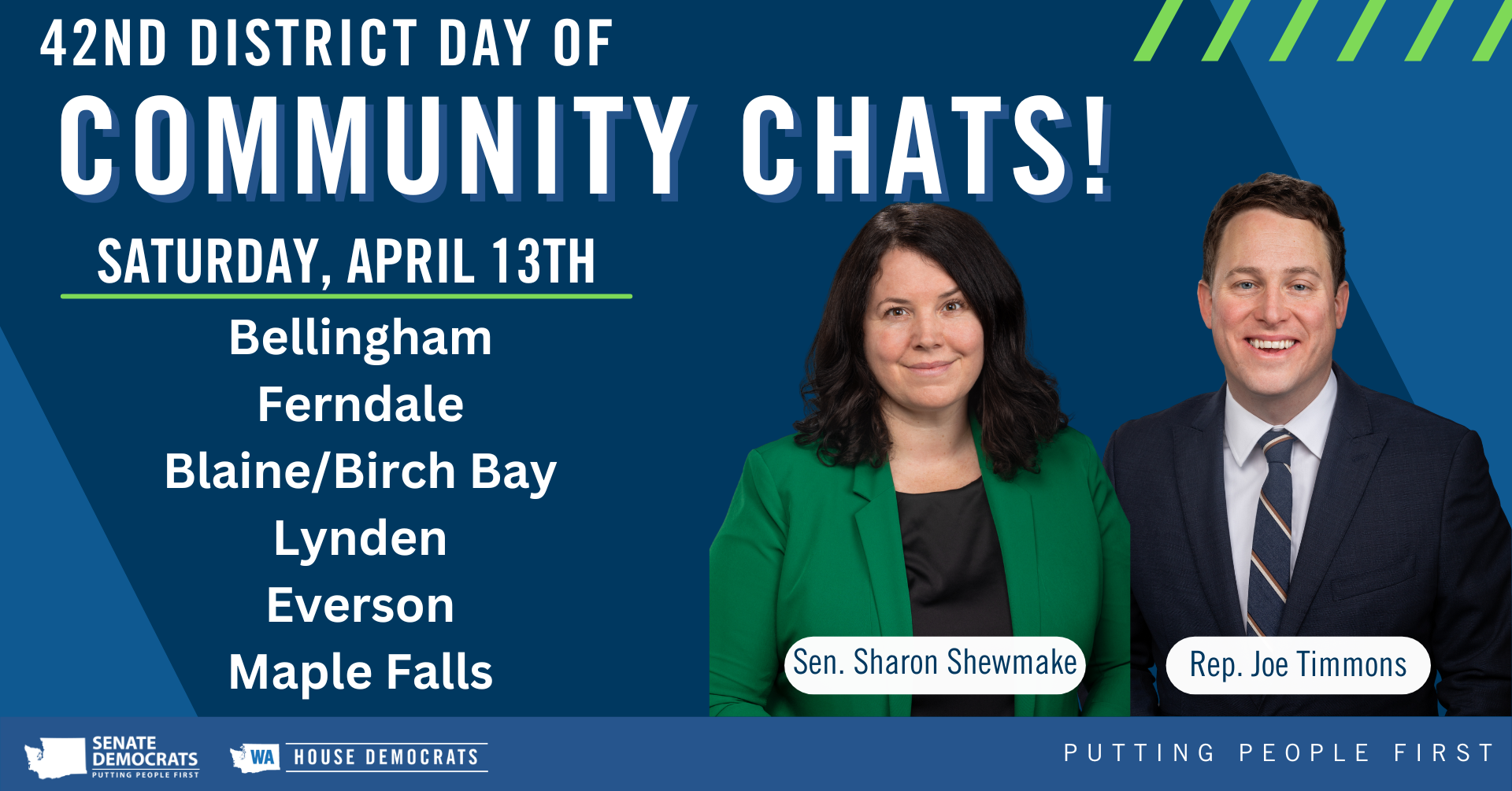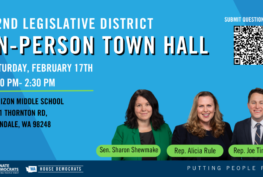Dear friends and neighbors
It’s budget time! The Legislature must pass three budgets each year – the operating budget, the capital budget, and the transportation budget. In odd numbered years we write a two-year budget, and in the short session, we’re really just updating (or supplementing) the budget we passed the year before.
The governor, the House and the Senate all propose a version of each of these budgets for a total of 9 draft budgets that are negotiated down to three final budgets. You can find these budgets at leap.wa.gov, and if you’re confused as to why there are so many budget proposals, well hang tight and I’ll walk you through them.
Operating Budget
In the operating budget you’ll find most things that require ongoing funding to operate, like schools, health care, and basic state and local government services. The amount of money in the operating budget varies each year with tax policy and the economy. Every year, we forecast how much revenue the state expects to take in during the budget cycle. This year’s updated forecast expects that Washington will bring in $67 billion in revenue. Overall, collections are up $1.3 billion since we adopted our 2023 budget, and that’s reflected in this year’s $1.9 billion supplemental budget. In every budget, we set aside “reserve” funding, which is why our budgets can total to slightly more than the revenue forecast without raising new taxes. For instance, this year we’re projected to have $2.2 billion in reserve operating funding.
Much of the budget surplus is going towards keeping pace with rising costs. Both the House and the Senate assumed we would need to spend about $1.1 billion on “maintenance level” costs. That money is spoken for — it’s needed to pay for the ongoing expenses of the programs and projects we’re already working on. So, the big question during budget talks is “what new spending are we adding?” This year, the Senate passed a budget with $722 million in new investments, much of it for schools, behavioral health, and climate priorities.
I know many school districts in Whatcom have had to make difficult decisions on what to cut and how to fund our paramount duty, teaching kids. We’re delivering another $242 million for our K-12 schools. That money will help pay for student meals, special education, and hiring more paraeducators. This is desperately needed funding, but it’s not enough to avoid cuts and serve our students to the fullest, so our work will not be over this year. I am committed to continuing our work on education funding so we can ensure every student in Washington has the resources they need to thrive.
We’re also investing nearly $252 million to transform our state’s behavioral health system and expand access to substance use disorder treatment. When we improve our behavioral health system, we make every other social program more successful. If people are taken care of when they’re in crisis, they’ll be more able to take advantage of the other opportunities available to them. It’s a win for everyone.
On top of those two priorities, we’re using Climate Commitment Act revenue to invest in energy efficiency, reduce carbon pollution, accelerate new green technologies, and help low-income families afford their utility bills.
Capital Budget
Our capital budget works in tandem with our operating budget to fund our state’s physical infrastructure. Oftentimes, it funds the physical buildings which host the programs our operating budget funds, but also the development of affordable housing, habitat restoration, and other state-funded construction projects.
This year, we’re bolstering our operating budget’s investments with more capital dollars for school construction, behavioral health facilities, and an $100 million investment into the Housing Trust Fund.
So many of our schools are facing school construction challenges, especially in rural areas and districts with low property values. We need to do more to ensure our students have the facilities they deserve, and this budget helps: $121.5 million for K-12 school construction, maintenance, and improvement. This, coupled with some policy changes to help districts pass local bond measures, will help schools fix their infrastructure and prepare us for bigger work on school construction in 2025.
We’re directing $44.5 million to the purchase and modernization of the Olympic Heritage Behavioral Health hospital in Tukwila as well as $44.8 million for new behavioral health and substance abuse treatment facilities run by the state’s tribal government partners, including $15 million for a facility at Lummi Nation which will be available to everyone.
Transportation Budget
The transportation budget funds the construction, improvement, and maintenance of our roads, highways, ferries, transit, and bicycle and pedestrian infrastructure. It also funds some transportation-related programs like those run by the Department of Licensing and the Washington State Patrol. As a vice chair of the transportation committee, this is the budget I help write with my colleagues.
This session, our top priorities were ensuring we are spending enough on preservation and maintenance, funding our ferry system and ensuring we can deliver on our megaprojects such as the I-5 bridge between Vancouver and Portland.
If you have business in the San Juan Islands or just want to visit, you’ve seen the mess that is our Washington State Ferry system. Sailings are delayed because of workforce challenges and boat maintenance. In this supplemental budget, we’ve allocated an additional $63 million, which will go towards staffing, including $10 million to hire additional crew, dispatch, and service planners. This is on top of work creating innovative pathways for jobs at Washington State Ferries and recruiting people who might be great sailors but never thought of themselves as working in the maritime industry. We know that our ferry system is so important to so many, especially those here in Whatcom County.
Do you have thoughts and concerns? Let me know! You can reach me any time at Sharon.Shewmake@leg.wa.gov, and your input is always valuable. Thanks for reading, and I look forward to being in touch!




